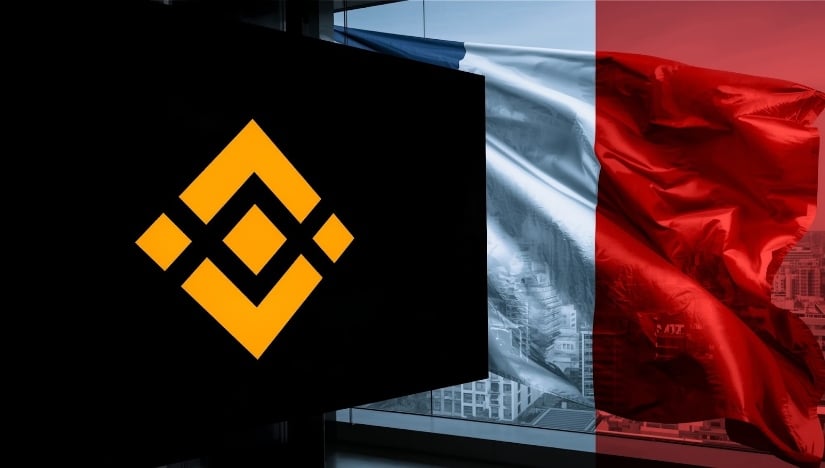These inspections will determine which companies can operate across all 27 European Union countries under new regulations.
France’s banking regulator is conducting extensive anti-money laundering checks on Binance and dozens of other cryptocurrency exchanges, according to a Bloomberg report published October 17, 2025.
The French Prudential Supervision and Resolution Authority (ACPR) started these confidential reviews in late 2024. Over 100 registered crypto service providers in France face evaluation before a critical June 2026 deadline. Companies that fail to meet requirements risk losing access to the entire EU market.
The High Bar for EU-Wide Operations
Getting approval is proving difficult. Out of more than 100 registered platforms in France, only four companies have received full authorization: Deblock, GOin, Bitstack, and CACEIS (owned by Credit Agricole). This represents an approval rate of roughly 4%.
The inspection process works in two parts. First, the ACPR checks if companies follow anti-money laundering and counter-terrorist financing rules. Then it shares findings with France’s Financial Markets Authority (AMF), which grants the final MiCA license. This license allows companies to offer services throughout the EU—a feature called “passporting.”
Binance, the world’s largest crypto exchange, received specific instructions last year to strengthen its risk controls. The company stated that working with the ACPR is a routine part of operating as a registered business. “The ACPR is conducting these checks across dozens of exchanges, as further detailed in their 2024 annual report,” a Binance spokesperson said.
Why These Inspections Matter
The Markets in Crypto-Assets (MiCA) regulation became fully effective in December 2024. It created unified rules for crypto companies across Europe. Companies now have until June 2026 to get full authorization. After July 1, 2026, firms without approval won’t be allowed to operate in the EU.
Source: @WhaleInsider
Regulators typically give companies several months to fix problems found during inspections. Common requirements include hiring more compliance staff and upgrading IT security systems. But companies that don’t address these issues face serious consequences—including sanctions or being denied a MiCA license entirely.
France’s AMF also blocked 22 websites offering illegal crypto services in 2025. The most recent additions to the blacklist came last week: acc.accgn.com, acc.accgn.net, and elansyvor.fr.
France Pushes for Stronger EU Control
France isn’t just conducting local inspections. It’s actively lobbying for major changes to how crypto is regulated across Europe.
Bank of France Governor François Villeroy de Galhau wants the European Securities and Markets Authority (ESMA)—based in Paris—to directly supervise major crypto firms. He argues that letting individual countries handle oversight creates uneven enforcement and regulatory loopholes.
“This framework would benefit from the much stricter regulation of the multi-issuance of the same stablecoin within and outside the European Union, to reduce arbitrage risks in times of stress,” Villeroy de Galhau said during an October speech.
France threatened in September to block crypto companies licensed in other EU countries from operating on French soil. The AMF expressed concern that some countries might grant licenses too easily, undermining the whole MiCA system. France, Austria, and Italy have all pushed for centralized oversight under ESMA.
Binance’s Ongoing Regulatory Challenges
This isn’t Binance’s first regulatory problem. The exchange and its founder Changpeng “CZ” Zhao settled with the U.S. Department of Justice for $4.3 billion over money laundering violations. Zhao was sentenced to four months in prison in April 2024 for failing to maintain an effective anti-money laundering program.
Because French law prohibits majority shareholders with criminal records, Binance replaced Zhao with two new shareholders—Yulong Yan and Lihua He—in May 2024 to maintain its French operations.
Binance also faces scrutiny in other countries. Nigerian authorities filed a lawsuit in February 2025 seeking $81.5 billion—$79.5 billion for alleged economic damages and $2 billion in back taxes—accusing the exchange of operating without proper registration and contributing to currency instability. Australia’s financial intelligence agency directed Binance to appoint external auditors after finding “serious concerns” with its anti-money laundering controls.
What Comes Next
The European Commission is preparing proposals to shift more regulatory power from national authorities to ESMA. This would create a single supervisor for major crypto exchanges, stock markets, and clearing houses across the EU.
Some countries oppose this change. Malta, Luxembourg, and Ireland argue that centralization would add bureaucracy and slow down enforcement. Malta has become a popular destination for crypto licenses, issuing permits to major exchanges like OKX and Crypto.com.
ESMA Chair Verena Ross supports the consolidation effort. She said it would address market fragmentation and create “a more integrated and globally competitive” European capital market.
The coming months will reveal whether France’s strict approach becomes the standard across Europe. Companies must decide whether to invest heavily in compliance infrastructure or potentially exit the EU market. For the crypto industry, the message is clear: the days of light regulation are over.
The Compliance Crossroads
France’s aggressive inspections mark a turning point for cryptocurrency in Europe. With 96% of registered companies still awaiting approval and less than two years until the deadline, the pressure is mounting. The industry faces a choice between meeting strict requirements or losing access to one of the world’s largest markets. How companies respond will shape the future of crypto regulation worldwide.

